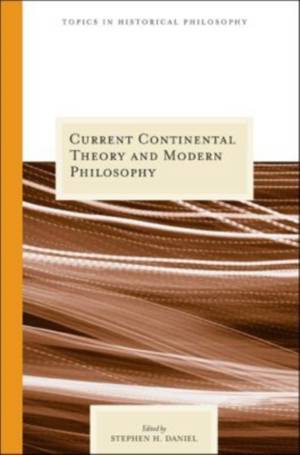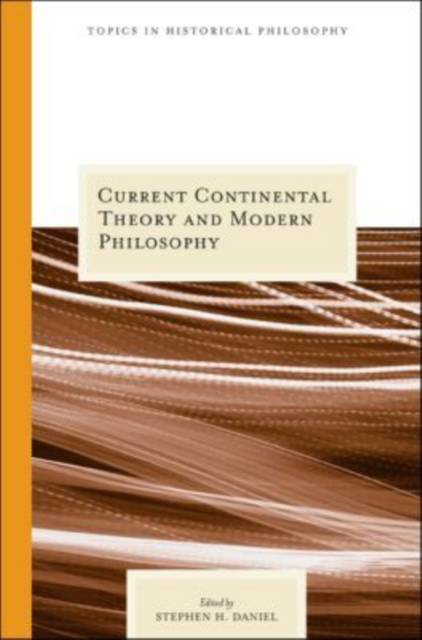
- Afhalen na 1 uur in een winkel met voorraad
- Gratis thuislevering in België vanaf € 30
- Ruim aanbod met 7 miljoen producten
- Afhalen na 1 uur in een winkel met voorraad
- Gratis thuislevering in België vanaf € 30
- Ruim aanbod met 7 miljoen producten
Zoeken
Current Continental Theory and Modern Philosophy
€ 50,45
+ 100 punten
Omschrijving
For decades Continental theorists from Derrida to Deleuze have engaged in provocative, penetrating, and often extensive examinations of modern philosophers-studies that have opened up new ways to think about figures such as Descartes, Spinoza, Leibniz, Locke, Hume, Rousseau, and Kant. This volume, for the first time, gives this work its due. A systematic rereading of early modern philosophers in the light of recent Continental philosophy, it exposes overlooked but critical aspects of sixteenth- through eighteenth-century philosophy even as it brings to light certain historical assumptions that have colored-and distorted-our understanding of modernist thought. This volume thus retrieves modern thinkers from the modernistic ways in which they have been portrayed since the nineteenth century; at the same time, it enhances our view of the roots and concerns of current Continental thought. What claims does the early modern period have on contemporary philosophy? How have recent theorists engaged this material, and why? In answer, some of these essays explore how major Continental theorists such as Derrida, Deleuze, Le Doeuff, Irigaray, Kristeva, and Althusser explicate the ideas of classical modern thinkers; others draw on recent Continental insights to examine the doctrines of modern philosophers beginning with Machiavelli and ending with Kant. Together they show how current Continental theory reinvigorates the study of the history of modern philosophers by transforming not only how we interpret their answers to certain questions, but also how we understand the very nature of these questions.
Specificaties
Betrokkenen
- Uitgeverij:
Inhoud
- Aantal bladzijden:
- 312
- Taal:
- Engels
- Reeks:
Eigenschappen
- Productcode (EAN):
- 9780810122024
- Verschijningsdatum:
- 11/01/2006
- Uitvoering:
- Paperback
- Formaat:
- Trade paperback (VS)
- Afmetingen:
- 168 mm x 224 mm
- Gewicht:
- 439 g

Alleen bij Standaard Boekhandel
+ 100 punten op je klantenkaart van Standaard Boekhandel
Beoordelingen
We publiceren alleen reviews die voldoen aan de voorwaarden voor reviews. Bekijk onze voorwaarden voor reviews.










